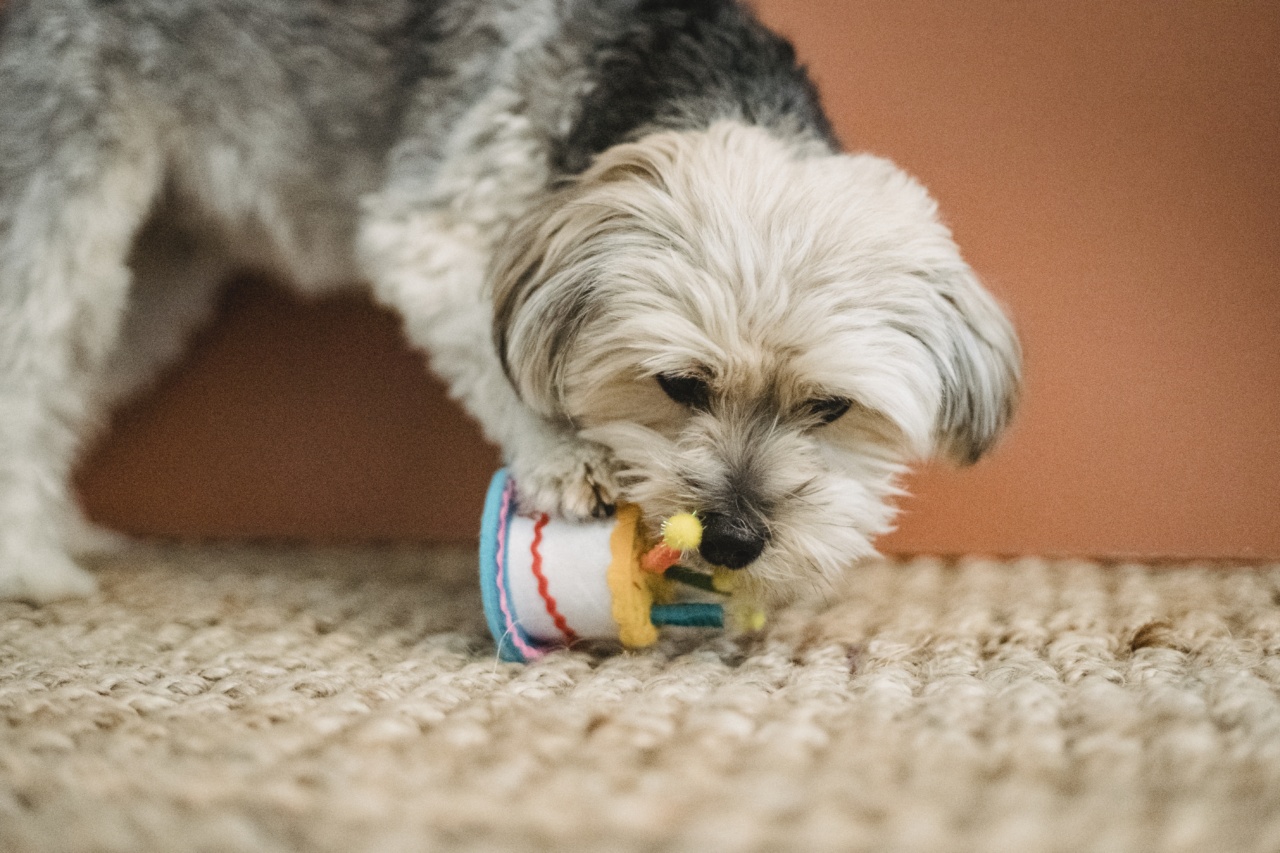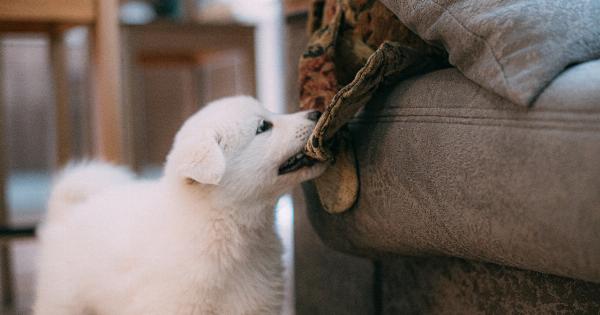As dog owners, we know that our furry friends can have a biting problem. While it may seem like a harmless habit, biting can be a big issue if it’s not nipped in the bud.
Whether your pup is a new addition to the family or an old friend, there are things that you can do to combat biting.
Tip 1: Establish Boundaries
Dogs need structure and boundaries to feel secure in their environment. You should establish rules and enforce them consistently. This means teaching your pup when it’s okay to bite and when it’s not.
For example, if you’re playing with your puppy and he nips too hard, stop playtime immediately and say “no” in a firm voice. This way, your pup will learn that biting too hard leads to the end of playtime.
Tip 2: Socialize Your Pup
Socializing your puppy is important for many reasons, one of which is preventing biting. You should expose your puppy to as many different people and animals as possible, in a controlled and safe environment.
This helps your pup learn how to interact appropriately with others and can reduce the risk of biting in the future.
Tip 3: Train Your Pup
Training your pup is essential for preventing biting. You should teach your pup basic commands like “sit”, “stay”, “come”, and “leave it”.
These commands can help you redirect your pup’s attention and prevent him from biting in certain situations. For example, if your pup is chewing on your furniture, saying “leave it” can redirect him to a more appropriate chew toy.
Tip 4: Use Positive Reinforcement
Positive reinforcement is a powerful tool for training your pup. When your pup exhibits good behavior, like not biting, you should reward him with treats, praise, or playtime.
This helps your pup learn that good behavior leads to positive outcomes, and encourages him to continue exhibiting that behavior in the future.
Tip 5: Provide Plenty of Toys
Dogs need something to chew on, and if they don’t have appropriate toys, they may turn to biting anything they can get their teeth on. Providing a variety of chew toys can help satisfy this need and reduce the risk of biting.
Make sure to choose toys that are the appropriate size for your pup and are made of durable materials that won’t break into small pieces.
Tip 6: Use Deterrents
If your pup continues to bite, despite your best efforts, you may need to use a deterrent. There are a variety of sprays and other products available that are safe and effective for deterring biting behavior.
These products work by creating an unpleasant taste or smell that your pup won’t want to experience again.
Tip 7: Seek Professional Help
If your pup’s biting behavior is severe or persists despite your efforts, it may be time to seek professional help.
A professional trainer or behaviorist can help identify the root cause of your pup’s biting and provide you with customized solutions to address the behavior.
Tip 8: Be Patient
Remember, stopping biting is a process that takes time and patience. Don’t expect your pup to stop biting overnight, and don’t get discouraged if progress is slow.
With consistent training and positive reinforcement, you can help your pup overcome biting behavior and establish a healthy and happy relationship with him.
Tip 9: Stay Calm
When your pup bites, it can be frustrating and even painful. However, it’s important to stay calm and avoid overreacting. Yelling, hitting, or using physical punishment will only make the behavior worse.
Instead, use the tips outlined above to redirect your pup’s behavior and help him learn appropriate biting habits.
Tip 10: Be Consistent
Consistency is key when it comes to stopping biting behavior. You must be consistent in your rules, training, and reinforcement to help your pup learn new habits.
This means everyone in the household must follow the same rules and provide consistent reinforcement to help your pup understand what is expected of him.





























